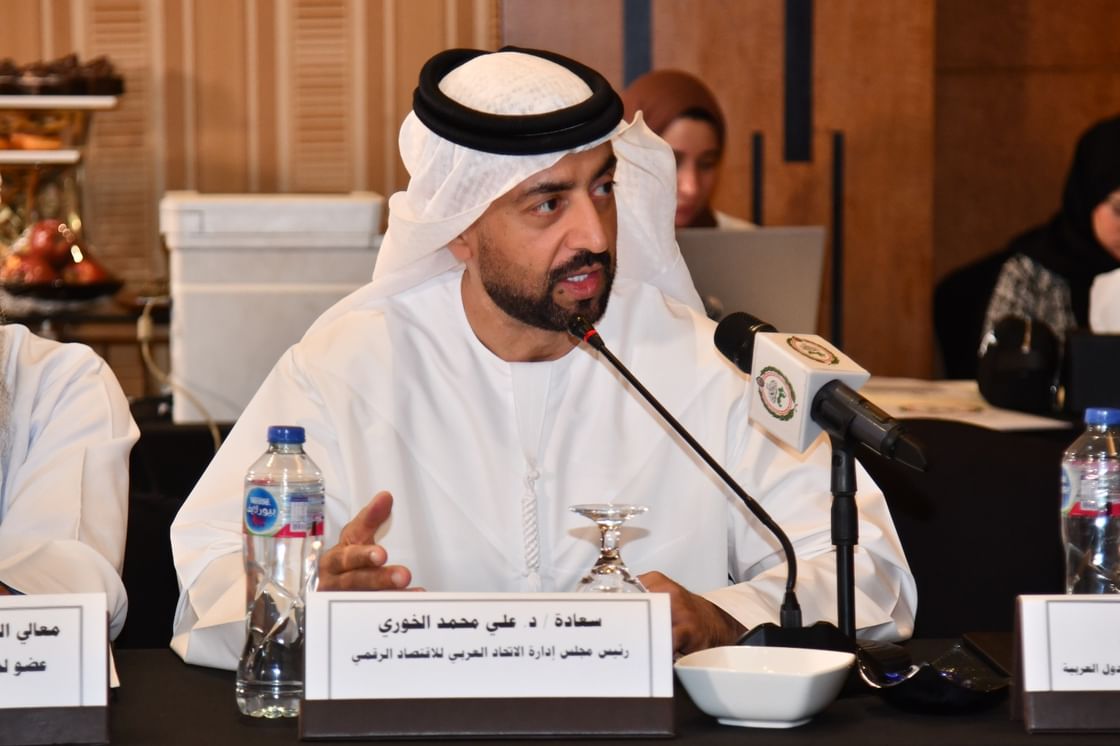Date: May 21, 2025
Dubai
Her Excellency Rakia Al-Derham, former Minister of Digital Economy of the Kingdom of Morocco and Chair of the Executive Committee of the Board of Directors of the Arab Federation for Digital Economy, emphasized that “digital transformation today represents one of the most important tools for sustainable economic and social development in the Middle East and North Africa region,” during her opening remarks on the second day of the Seamless Middle East 2025 conference held in Dubai.
In her remarks, Her Excellency reviewed the successful experiences of the United Arab Emirates, the Kingdom of Saudi Arabia, and Morocco as pioneering models in building a strong and diversified digital economy. She noted that these countries did not stop at adopting ambitious strategies but worked to transform them into a tangible reality through direct investments in digital infrastructure, education, innovation, and regulatory frameworks.
UAE: A Global Model of Digital Leadership
Her Excellency Ruqayya Al Derham praised the UAE’s experience, which has become a leading model of digital leadership worldwide in just a few years. She noted that this progress did not come out of nowhere, but rather is the result of well-thought-out policies that began more than a decade ago, most notably the UAE Vision 2021 and the Digital Government Strategy 2025.

She pointed out that what distinguishes the UAE’s experience is its comprehensive approach to digital transformation, in terms of the continuous modernization of the government services system, investment in data centers, artificial intelligence, and 5G networks, and the creation of incubating environments for startups. She noted that the UAE’s digital economy currently contributes more than 9.7% of the GDP, a figure that is constantly increasing, especially with the launch of major projects such as the Artificial Intelligence Complex, which aims to establish the country as a global hub for this vital technology.
Saudi Arabia: The Transition from Oil to Data
Her Excellency pointed out that the Saudi digital economy is a story of bold economic transformation, thanks to the Kingdom’s Vision 2030, which laid solid foundations for moving away from its historical dependence on oil. Her Excellency Al-Derham noted that Saudi Arabia has chosen technology as a key driver of this transformation, through mega projects such as NEOM City and the launch of multiple programs in the fields of e-government, cybersecurity, and cloud computing.
She stated that the Saudi Central Bank (SAMA) is working to transform the economy towards cashless transactions, aiming to reach 70% by 2030, an ambitious goal that demonstrates the Kingdom’s commitment to building a safe and sustainable digital economy. She added that the digital economy in the Kingdom currently represents approximately 6.4% of GDP, with clear growth indicators confirming that Saudi Arabia is on the right track.
Morocco: The Rise of North Africa
As for Morocco, Her Excellency emphasized that the Kingdom’s experience in the digital economy is characterized by continuity and a focus on social justice, through the “Digital Morocco” strategy, which has been developed and expanded to include all regions. She indicated that the state seeks to transform technology into a tool for empowering youth and creating job opportunities, not just a means of improving government efficiency.

She explained that Casablanca and Rabat have become centers of digital innovation, and that the outsourcing and IT sectors have become a major source of income for the country. She noted that Morocco’s digital economy contributes 4% of GDP, with significant potential for growth if the necessary investments in infrastructure and digital skills are made.
Common Challenges Between the Three Countries
Despite the remarkable progress, Her Excellency Al-Darham did not fail to highlight the challenges facing these countries, which include:
The digital divide between urban and rural areas.
The need to strengthen digital education and integrate it into school curricula.
The need to update legislation related to data, privacy, and cybersecurity.
Investing in developing digital skills among the young workforce.
She emphasized that the solution lies not only in increasing investments, but in building comprehensive digital policies based on regional cooperation, private sector participation, and empowering women and youth to take advantage of opportunities available in the digital economy.

Future Vision: Building Arab Digital Partnerships
At the end of her speech, Her Excellency Rukia Al-Derham called for cooperation between Arab countries in the field of the digital economy, stating that “the Arab Federation for Digital Economy is working diligently to provide technical and institutional support to build digital partnerships between Arab countries and transfer successful experiences from one country to another.”
She added, “The future of the region will not be far from technology, and if we want to build a competitive and sustainable Arab economy, we must make digital transformation a strategic priority and invest in people before investing in machines.”
Link to the video of the speech:










